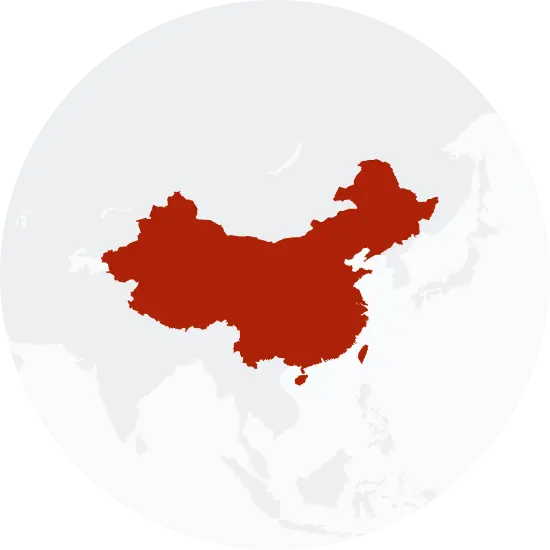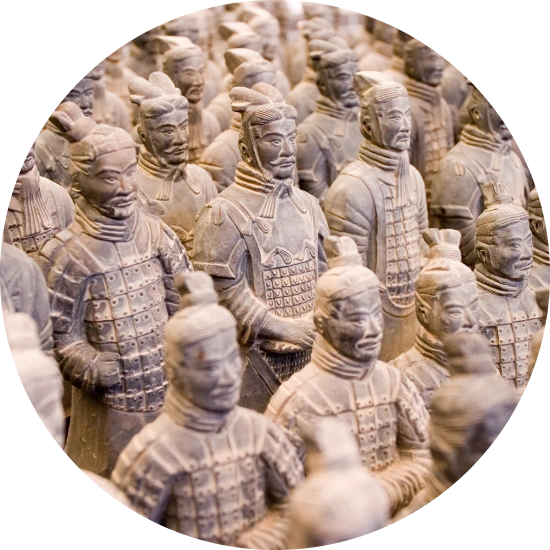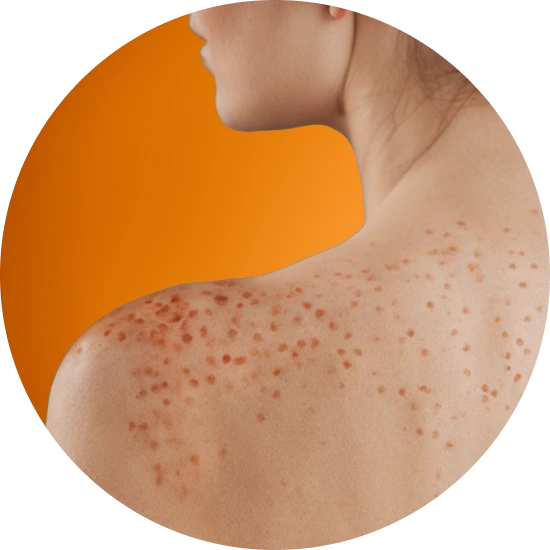Explore the Family Name Wang
How common is the last name Wang in the United States?
Based on the Decennial U.S. Census data, the Wang surname has seen a substantial increase in popularity between 2000 and 2010. In 2000, it was ranked as the 438th most popular surname with a count of 67,570, equivalent to about 25.05 per 100,000 people. By the time of the 2010 census, the rank had improved to 282nd, reflecting an impressive 35.62% change. The overall count of individuals with the Wang surname also grew by a notable 62.62% to 109,883, or 37.25 per 100,000 people.
| 2000 | 2010 | Change | |
|---|---|---|---|
| Rank | #438 | #282 | 35.62% |
| Count | 67,570 | 109,883 | 62.62% |
| Proportion per 100k | 25.05 | 37.25 | 48.7% |
Race and Ethnicity of people with the last name Wang
The ethnic identity associated with the Wang surname is predominantly Asian/Pacific Islander, according to the Decennial U.S. Census data. In 2000, approximately 94.47% of people with this surname identified as Asian/Pacific Islander, a percentage that slightly rose to 95.24% in 2010. There have been changes in other ethnic identities too. For instance, those identifying as White declined from 3.25% to 2.59%, while those identifying as Black saw an increase from 0.19% to 0.29%. Meanwhile, the number of people with the Wang surname who identify with two or more races dropped by 13.29%, and those identifying as American Indian and Alaskan Native decreased by 33.33%. On the contrary, those identifying as Hispanic saw a 6.06% increase over the decade.
| 2000 | 2010 | Change | |
|---|---|---|---|
| Asian/Pacific Islander | 94.47% | 95.24% | 0.82% |
| White | 3.25% | 2.59% | -20.31% |
| Two or More Races | 1.73% | 1.5% | -13.29% |
| Hispanic | 0.33% | 0.35% | 6.06% |
| Black | 0.19% | 0.29% | 52.63% |
| American Indian and Alaskan Native | 0.03% | 0.02% | -33.33% |
Wang ancestry composition
23andMe computes an ancestry breakdown for each customer. People may have ancestry from just one population or they may have ancestry from several populations. The most commonly-observed ancestry found in people with the surname Wang is Chinese, which comprises 88.2% of all ancestry found in people with the surname. The next two most common ancestries are Korean (3.4%) and Manchurian & Mongolian (3.1%). Additional ancestries include British & Irish, French & German, Vietnamese, Chinese Dai, and Filipino & Austronesian.
Ready to learn more about your ancestry? Get the most comprehensive ancestry breakdown on the market by taking our DNA test. Shop 23andMe
| ANCESTRY BREAKDOWN | COMPOSITION |
|---|---|
| Chinese | 88.2% |
| Korean | 3.4% |
| Manchurian & Mongolian | 3.1% |
| Other | 5.3% |

Possible origins of the surname Wang
Your DNA provides clues about where your recent ancestors may have lived. Having many distant relatives in the same location suggests that you may all share common ancestry there. Locations with many distant relatives can also be places where people have migrated recently, such as large cities. If a large number of individuals who share your surname have distant relatives in a specific area, it could indicate a connection between your surname and that location, stemming from either recent ancestral ties or migration.
Based on 23andMe data, people with last name Wang have recent ancestry locations in China and Taiwan.
| RECENT ANCESTRY Location | Percentage |
|---|---|
| Guangdong, China | 26.00% |
| Jiangsu, China | 25.70% |
| Fujian, China | 25.60% |
| Zhejiang, China | 25.50% |
| Shandong, China | 25.10% |
What Wang haplogroups can tell you
Haplogroups are genetic population groups that share a common ancestor on either your paternal or maternal line. These paternal and maternal haplogroups shed light on your genetic ancestry and help tell the story of your family.
The top paternal haplogroup of people with the surname Wang is O-F8, which is predominantly found among people with East Asian & Indigenous American ancestry. Haplogroup O-F8 is descended from haplogroup O-M1359. Other common haplogroups include O-F46 and N-L665, which are predominantly found among people with East Asian & Indigenous American and East Asian & Indigenous American ancestry. Other surnames with similar common haplogroups are: Zhang, Li, Chen, Chang, Wu, Liu, Sun, Lu, Yang, Zhao.
The most common maternal haplogroups of people with Wang surname are: A4, F2, M7b. These most commonly trace back to individuals of East Asian & Indigenous American and European ancestry.
 Paternal Haplogroup Origins O-M1359
Paternal Haplogroup Origins O-M1359
Your paternal lineage may be linked to the Han Chinese
Haplogroup O-Page23 has been found in several populations of the Han Chinese ethnic group. The ancestors of the Han, called the Huaxia, lived in the upriver basin of the Yellow River 5,000-6,000 years ago. As agricultural technology improved, the Huaxia spread east and south, and became the Han Chinese. Over the last 2,000 years, there have been three major migrations of the Han southward. The first of these migrations occurred during the Jin Dynasty from 317 to 420 CE, when nearly one million people moved south. A second migration occurred during the Tang Dynasty, after the An-Shi Rebellion, between 755 and 762 CE. The last migration occurred during the Southern Song Dynasty, from 1127 to 1297 CE, when nearly 5 million people migrated southward. The Pinghua, a branch of Han in which haplogroup O2a2b1a1 is particularly common, may be descendants of indigenous minority groups that adopted Han culture during one such major migration event.
Your maternal lineage may be linked to the builders of the Terracotta Army
Qin Shi Huang, who unified warring states to become the First Emperor of China and founded the Qin Dynasty, ruled the Chinese state of Qin from 247 BC to 210 BC. In addition to his political feats, his reign is known for the massive construction projects, including his mausoleum in the Shaanxi province of central China, which began construction in 246 BC. To aid him in the afterlife, 8,000 perfectly life-like soldiers were crafted out of molds and clay and placed at guard over his tomb: his own Terracotta Army.An estimated 700,000 workers were involved in the mausoleum construction alone, and in 2003, hundreds of skeletal remains were unearthed near the mausoleum. Curious about the ethnic origins of these men, a group of Chinese scientists decided to examine their maternal haplogroups. They found that some of these workers belonged to haplogroup A, and that the group had come from a variety of places across East Asia.

What do people with the surname Wang have in common?
Spoiler alert: it's complicated. People with the same last name are usually no more genetically similar than a randomly sampled group of people from the same population. That said, people with the same surname are more likely to have similar ancestries than randomly sampled individuals. The reason is the tendency of people with similar cultural or geographical backgrounds to preferentially mate with one another. That's why people who share a surname may be more likely to share traits and tendencies in common than people within the general population. Check out the percentages below to see the prevalences of tastes, habits, and traits of people with your surname compared with prevalences among 23andMe users.
Preferences
Traits
Habits
Wellness
Are health conditions linked to the last name Wang?
The short answer is that, if there is an association between surname and health, it's usually more about your ancestry than your name. Individuals with a given surname are no more genetically similar than the general population but often have similar ancestries. The populations of people associated with those shared ancestries often have sets of genetic variations, also known as alleles, in common. Some of those alleles are associated with a greater likelihood of developing certain diseases.
Disease variant frequency by ancestry
Disease allele frequencies in populations associated with the surname Wang are shown below. Important Note: not everyone with a disease allele will develop these health condition


























